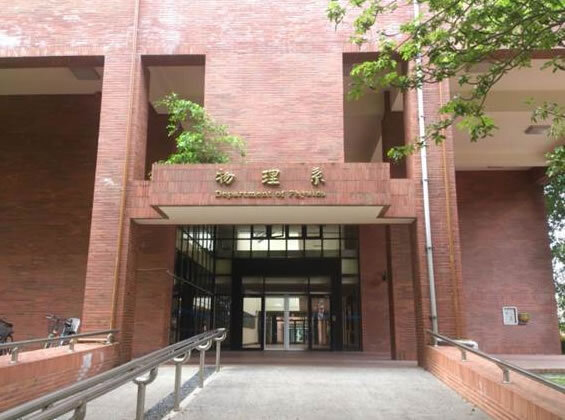
History
Following the University motto, “To innovate with earnestness; be virtuous with altruism,” the Department of Physics was established in 1991 with the goal of nurturing young talents in the field of physical science for the country. Starting with the Master’s program, the Department quickly launched its undergraduate program in 1992 and Ph.D. program in 1997, making itself a fully-fledged institution for both research and education in physical science.
Research
The Department aims to cultivate scientists and engineers for high-tech industries by engaging forefront researches in the fields of condensed-matter physics, theoretical and computational physics, high-energy physics, magnetism and super-conductivity, surface science, optoelectronics, atom optics and laser cooling, plasma physics, and physics of many-body systems.
The Department has active collaborations with the Institute of Physics, Academia Sinica Taipei, National Synchrotron Radiation Research Center, National Center for High-Performance Computing, Industrial Technology Research Institute, and research institutes at other universities and in industries. There have also been frequent visits of well-known scholars from abroad for research initiatives and lecture series. The Department also undertakes research projects from industries, aiming to achieve highly effective integrations between fundamental researches and industrial applications.
Curriculum Regulation


Career Opportunities for Graduates
Students majoring in physics may choose to enter the job market immediately after receiving Bachelor’s degrees, but most of them opt to pursue Master’s degrees either in Taiwan or abroad in the fields of physics, electro-physics, applied physics, optoelectronics, material sciences, and other related disciplines. Students with Master’s degrees can either pursue their PhD study or enter the job market in the areas of electronics and semiconductor industries, optoelectronics, and material sciences as research scientists, engineers, or management staffs; some others may also choose to start up their own business. Students holding PhD degrees may also take up jobs in academia. In addition to taking physics courses, the enrollment in the Teacher Education Program may offer students the opportunity to become qualified primary/high school teachers. In general, physics graduates have a broad range of career opportunities to choose from
Contact Information
Tel:+886-5-2720411 ext. 61301 ~ 61303
Fax:+886-5-2720807
Email:physicsa@ccu.edu.tw
